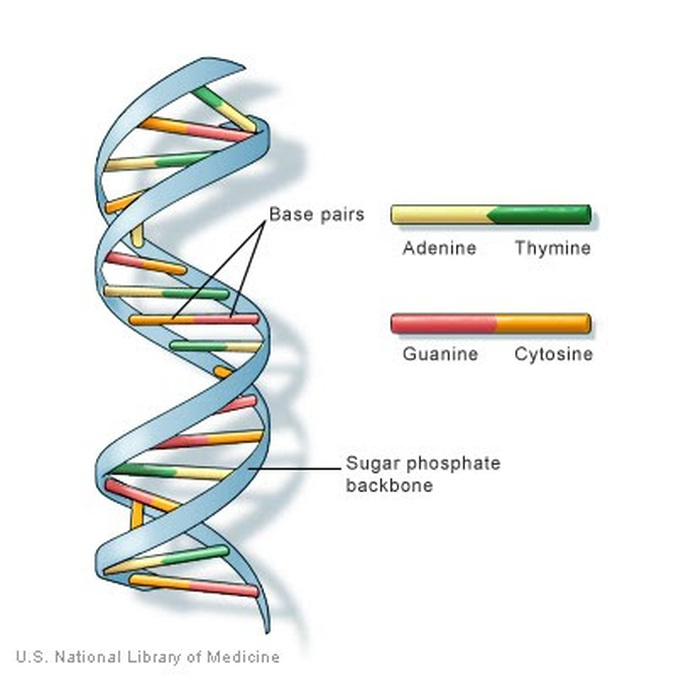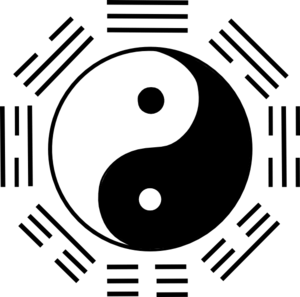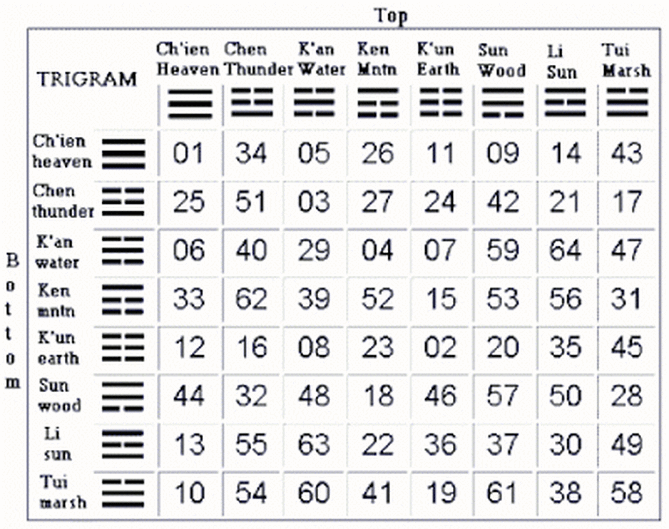 Chinese astrological studies have their roots in the I-Ching (易经), the most important book containing the fundamental truth of how the universe operates. Its philosophy has influenced various fields such as biology, medical science, and computer coding. However, to avoid boring you, let's not delve too deep into it just yet. For I-Ching newbies, the book was commissioned by Emperor Fu Hsi around 3,000 BC. It's known as 'The book of Changes' and explores the relationship between all things created through a variety of trigrams and hexagrams, as well as the relationship between Yin and Yang (such as female and male, hard and soft, life and death). The 8 Trigrams of the I-Ching While some view the I-Ching as a book of Oracles, it's much more than that. It's a book of life, literally. DNA, the genetic instructions used in the development and functioning of all known living organisms, is often compared to a set of blueprints, a recipe, or a code. The basis of DNA is + and -. This is also binary code. Computer language operates on this philosophy and so is the basis of all human language. So, lets look at the similarities between the I-Ching and DNA. In his 1979 book Martin Schonberger (the author of The I Ching and the Genetic Code: The Hidden Key to Life) explained as simple as one can when creating a bridge between science, genetics and oracles. Firstly you need to know that the I-Ching contains 64 Hexagrams – made up of 8 trigrams each having a relationship with themselves 8 x 8 = 64.
There are only four combinations of Yin and Yang, with the first two bars of the I-Ching. EG: If we said Yin was represented by 0 and Yang by 1, then the possible combinations are 00, 01, 10, 11. These four choices align with T, C, G, A, which then when multiplied make up the exact number of Amino acids that are part of DNA. So, what does it all mean? Here are some food for thoughts for you:
0 Comments
The Eastern astrological system, deeply rooted in Taoist and Buddhist traditions, offers some of the most profound personal guidance tools ever discovered, akin to a sea captain's compass or a pilot's navigation system. The Ba Zi and Zi Wei Dou Shu are two of the most insightful practices in this system, providing the choice to navigate life's storms or fly directly through its tempests.
In Chinese Astrology: Exploring the Eastern Zodiac, we explored the 12 earthly branches and their archetypal characteristics, the five essential elements, and the relevance of one's birth year. These branches and stems serve as stepping stones to navigate the deeper intricacies of Chinese astrology, with each day and time slot assigned an animal sign and element, completing the four pillars of destiny or the Ba Zi. The Eastern astrological system uses the five elements, with emphasis on the "daymaster," ruling the day of your birth. The Zi Wei Dou Shu chart, the grandfather of all Chinese astrological specialties, is a life chart plotted in a rectangular rice paddy, taking us on a tour of our destiny through the 12 palaces or domains. Major and minor star energies move in and out of each life palace, revolving around the placement of the all-important Zi Wei or "emperor star," painting a rich personality portrait and assessing life options. I hope this journey through these ancient arts will be beneficial and insightful. Remember, "when the student is ready, the teacher will appear." With DNA sequencing, weather forecasts, political forecasts, and financial forecasts available to us, it is reasonable to wonder why we can't have a forecast for our destiny. In the 21st century, knowledge has become a critical asset for survival and success in a knowledge-based economy. The ability to access holistic knowledge and wisdom not only empowers us to advance ourselves but also enables us to help others. Astrological analysis offers a spiritual form of DNA sequencing for our destiny.
I will reveal the secrets of astrological reading to help beginners understand how astrology differs from superstitious beliefs. However, before diving into astrology, it is essential to cultivate certain mindsets and behaviors, such as patience, inquisitiveness, continuous learning, open-mindedness, and compassion. Patience is key since mastering astrology takes a lifetime of study. One must also be cautious of false beliefs and superstitions and continually strive to discover reliable and accurate methods for predicting astrological events. Moreover, astrology is the study of life phenomena, and to excel in it, one must continually expand their general knowledge and link it with astrological studies. While specializing in one method is necessary, one must not limit themselves to a single style of practice. There is no "old" or "new" astrology; there is only accurate or inaccurate astrology. Each system of astrological calculation has its own strengths and limitations, and one must master one style before learning as many others as possible to adopt what is efficient and effective for accuracy. Finally, one should use their astrological knowledge constructively to help others. Destiny can be changed for the better through good intention and action, and a compassionate heart towards all sentient beings is necessary. Life is a lesson, and everything in life can teach us something. We should be grateful for the opportunity to learn this lesson called life. |
AuthorJason Hathairat Archives
February 2022
Categories |


 RSS Feed
RSS Feed
